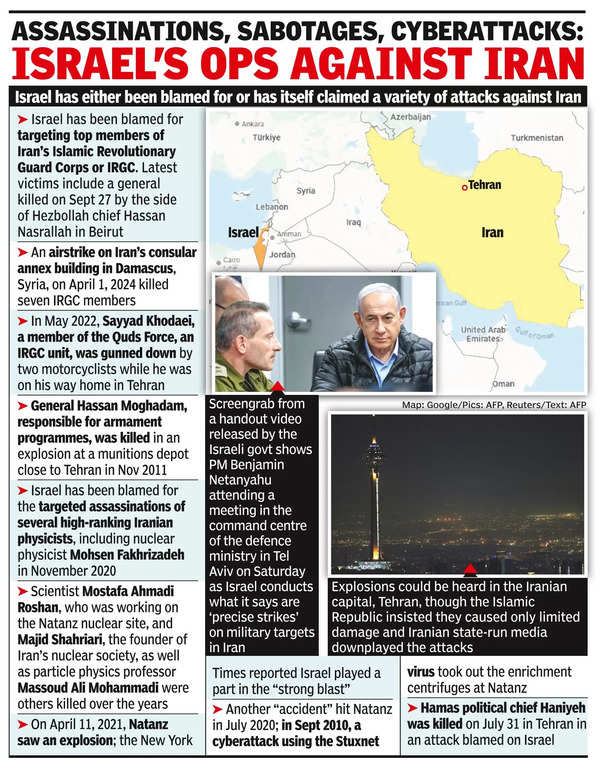Israel’s assault on Iran early Saturday, coordinated with Washington and limited to missile and air defense sites, was more restrained than many expected and may help diplomatic efforts to return hostages and limit the combat in both Lebanon and Gaza. Israel held off until US secretary of state Antony Blinken returned to Washington from four days of consultations with Israeli and Arab allies.
In a set of sorties under cover of darkness, and likely over hostile territories including Syria and Iraq, dozens of Israeli warplanes flew thousands of kilometres. Refuelling in midair, they targeted military sites in three provinces in retaliation for Iran’s firing of ballistic missiles at Israel on Oct 1.
Israel distributed videos of Prime Minister Benjamin Netanyahu and military chiefs coordinating from a defence ministry bunker, a rare acknowledgment of an attack on the Islamic Republic and an expansion of what has been until now mostly a shadow war. Iran’s state-run IRNA news agency said four people were killed, all with the country’s military air defence. The strikes risk pushing the arch-enemies closer to all-out war at a time of spiralling violence across the Middle East.

US President Joe Biden told reporters Israel gave him a heads-up before the strikes and said it looked like “they didn’t hit anything but military targets”. He said he had just finished a call with intelligence officials.”I hope this is the end,” he said.
Israel’s restraint let Iran dismiss the retaliation as ineffective, possibly setting the stage for a restrained response or no response at all. Iran’s first vice president Mohammad Reza Aref, posted on his X account, “Iran’s power has humiliated the enemies of the motherland,” while state TV interviewed children going to school and people exercising. The official Tasnim news agency spoke only of “reserving right to respond.”
Iran hadn’t faced a sustained barrage of fire from a foreign enemy since its 1980s war with Iraq. Israel and Iran have been bitter foes since the 1979 Islamic Revolution. Israel considers Iran its greatest threat, citing its leaders’ calls for Israel’s destruction, their support for anti-Israel militants and the country’s nuclear programme. “We are focused on our war objectives in the Gaza Strip and Lebanon. It is Iran that continues to push for a wider regional escalation,” Israeli military spokesperson Rear Adm Daniel Hagari said.

